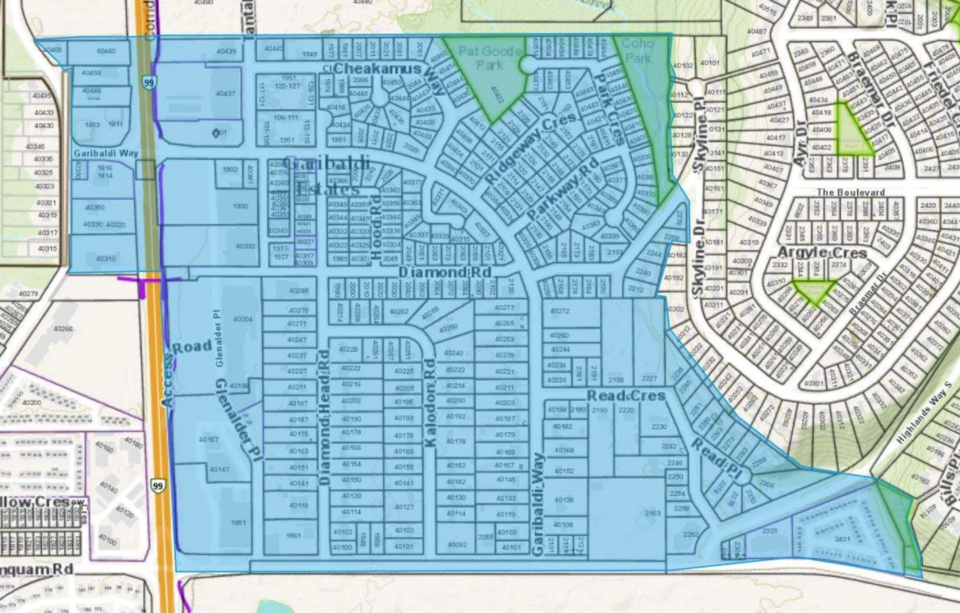I have attended a Phase 2 and Phase 3 meeting for the Neighbourhood Planning Process for Garibaldi Estates. This planning process has one objective, and that is to have more people living in the Estates.
This is to be accomplished by providing property owners with the ability to densify their properties by building new townhomes, duplexes, cottage clusters, apartments, and other building types but not single family.
The planning department has created different options for five different areas of the Estates and wants the community to evaluate which would fit best for these areas.
The problem with this approach is the planning department is unable to answer many of the questions the residents have regarding how this so-called required densification will actually get achieved.
Questions like how will the infrastructure requirements be managed, how much it will cost to rezone their properties, how much the permits to do so will be and most importantly, what is the density target for the Estates and how Highway 99 will handle this unknown density.
The planners also failed to identify what the property owners considered the highest values they have retained on their properties and how the planning process would ensure no loss of these values.
Some of these values the owners identified included; tree preservation, green spaces and parks, wildlife corridors, and food production.
The planners are now calling these “Emerging Ideas” Something to consider where possible and maybe doable but maybe not, and can’t force new owners to care about them.
How in 2023 did our planning department claiming we are densifying to combat climate change miss identifying these values upfront and ready themselves to show how they are going to, not maybe could, include these values in a densification concept for review?
Densifying for affordability is another reason why this process is happening with no proof it works.
Unless the District can control the land price and the price of the home and rents, then affordability is at the mercy of the owners.
I’ve been told this does work as new homes are more appealing to the wealthy, so they will avoid buying older homes.
This results in older homes becoming cheaper for regular citizens.
Really? Why would a wealthy individual that wants to live in Squamish buy a duplex or apartment on a small lot with no room for their possessions when they can buy an older single-family home, tear it down and build their dream home or simply buy a single-family home that they like.
Condos and mixed units on top of each other are the domain of those that can’t afford single-family or don’t want to work in their yard.
As the price goes up on new builds, the price on old builds go up as well.
So do the taxes.
So what lower-income individuals who live here already can afford any old homes that apparently are not appealing to the wealthy?
I am not a planner, but I believe that a planning principle should be a beginning with the end in mind and putting first things first.
So they are beginning with pick your density type and ending with figuring out how to manage the consequences of the densifying last.
I understand why the landowners are reluctant to pick anything the planners are presenting without knowing what the consequences of any of the options will be for them personally.
There are no consequences for those who buy the land or new housing post allowable development.
Nadine Beckham
Single-family homeowner on a larger-than-normal lot, not in the Estates






